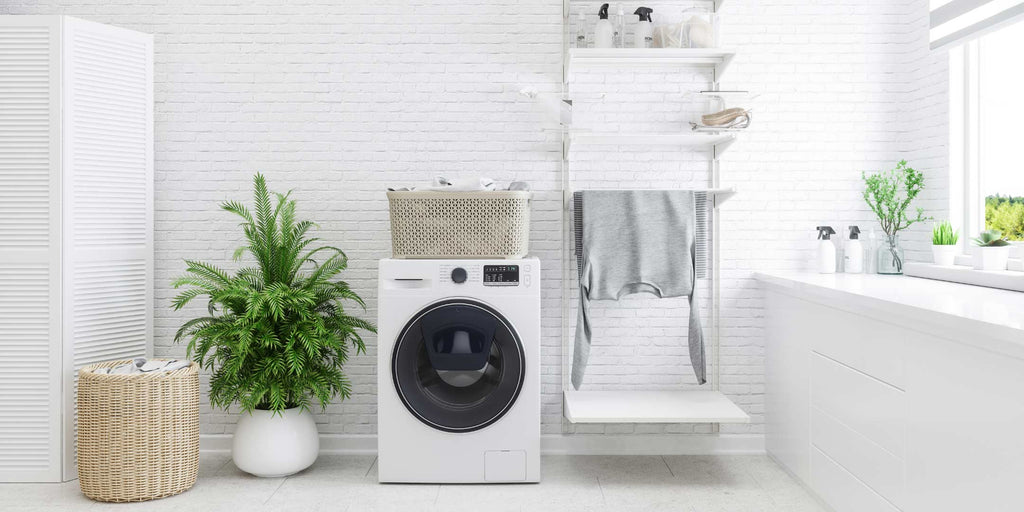While taking the burden off your laundry tasks, the use of your best-loved washing machine comes at a cost. Ever wonder how much electricity this hardworking appliance consumes? This guide will give you the answers.
Washing machines are known for their hard-working functions and hefty energy consumption. But did you know that this appliance uses less energy than the refrigerator? What’s more surprising is that the dryer in a washer-dryer combo uses more electricity than the washer.
Ultimately, the power consumption of a washer depends on its type. Is your washing machine a top-loader model or a front-load variety? Is it automatic or semi-automatic? Different washing machine brands may also come with different power consumption.
Washing Machine Power Consumption

An average wash cycle lasts for 30 minutes, while a dryer typically runs for 45 minutes. This depends on the number of wash cycles done per laundry session. An average Singaporean household electricity cost per 1-hour session is $2. This is for a 7-litre, 2000-watt washing machine.
Front-Load vs. Top-Load Washing Machine Consumption

Generally, top-load washing machines consume less electricity than front-load units since their wash cycles are relatively shorter. On the other hand, front-load washers require less water consumption than top-load varieties, as they only use enough water to soak the clothes. Their tumbling motions are also more effective in cleaning the clothes compared to the top-loader’s twisting motion. Choosing the best between the two depends on the factors that you want to prioritise.
NEA Tick Labels

Appliances in Singapore have attached NEA (National Environment Agency) Energy Labels which pertain to their energy-efficiency. These labels can be seen both in physical and online appliance stores for appliances that meet the MEPS, or Minimum Energy Performance Standards. These are expressed in ticks or check marks, which are noticeably seen on labels. The lowest possible rating is 1, while the highest is 5.
The higher the tick rating, the more energy-efficient the appliance will be. This will have a significant impact on your electricity bills. Ultimately, more advanced washing machines in Singapore may cost more upfront but are more cost-efficient to operate as they save more energy than budget models.
Takeaway

The power and importance of a washing machine are surely undeniable. With its hard-working processes and convenience, this large piece of home equipment is easily one of the things your household should possess. However, with its bulky look and energy-consuming nature, it can be overwhelming to use a washing machine. The good news is that we can now find more energy-efficient washing machines that can significantly help save electricity throughout their lifespan. The key is to look for innovative washers with higher NEA tick ratings.
Take a look at these other tips to save more on your washing machine's electricity consumption:
- Wash with full loads if possible
- Try washing with cold water
- Dry bulkier items separately
- Use low-heat dry settings
Megafurniture presents innovative washers and dryers from the most trusted appliance brands in Singapore. Browse through our online collection to get the best washers and dryers at the best prices.








